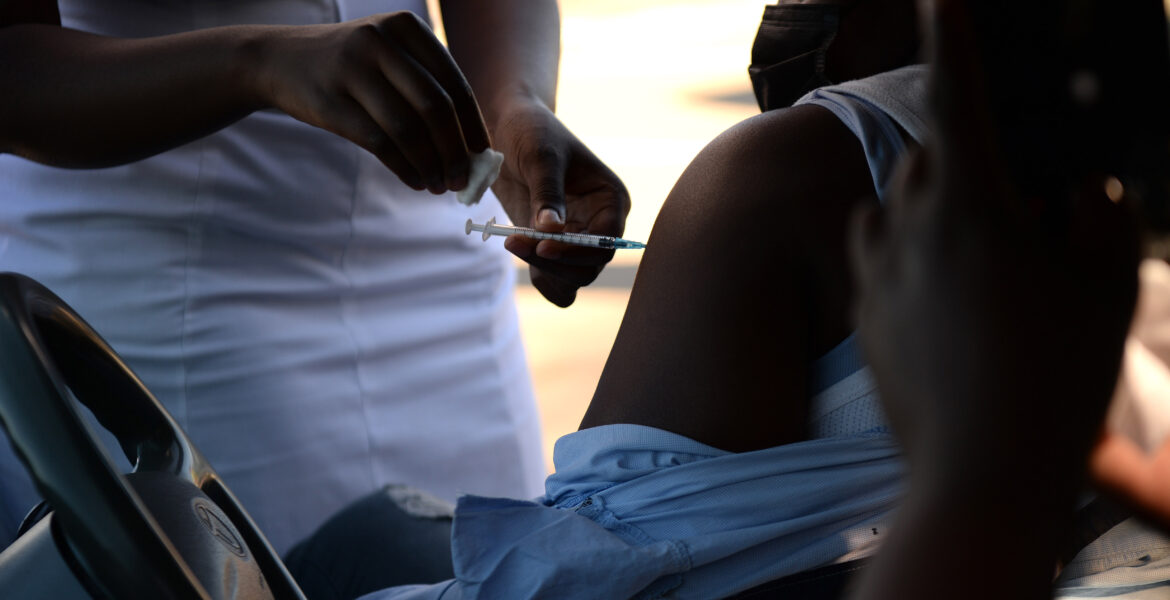Botswana must enhance vaccine coverage with adequate booster doses given to those who require them because cannot aff ord to be complacent about this matter, writes OSCAR MOTSUMI
Just before the Easter break, the media reported that the Botswana Government might have to destroy 400 000 vaccine doses and that more vaccines were at risk of expiry before use because Batswana are no longer interested in getting the life-saving jabs into their arms. On its part, the government is also in the process of ending some of the measures it put in place to curb the spread of the coronavirus.
Infections have dramatically gone down, and so have the rates of hospitalisation and deaths. But has Botswana really turned the COVID-19 corner? Have we reached the point of understanding which COVID-19 preventive measures work? In other words, have we arrived at the recovery stage of the pandemic? Looking at these numbers, in the absence of thorough scientific data on sero-positivity against SARS-CoV-2 before the last wave of COVID-19 (South Africa has excellent data on this), it is getting somewhat clear that Botswana is moving into the convalescent phase of the COVID-19 pandemic recovery phase.
The country has a modest vaccine uptake but we really should have done better here. Pandemic exit measures, especially the effort to start rolling back preventive measures and to start managing the pandemic as we would with other respiratory infections that too cause large numbers of hospitalisation and deaths, should be based on scientific study and data supporting such policy shifts. Let’s not forget that only two weeks ago, four Batswana were diagnosed with a new sub-variant mutant and that another resurgence is still likely.
Let’s not forget there are still some unknowns that can do much harm if we let our guard down far too fast and far too soon. The greatest worries are further variants being able to evade the T-cell arm of the immune system which is stimulated by vaccines and natural infection plus breakthrough infections in vaccinated people, and reinfections.
Botswana must enhance vaccine coverage. We cannot afford to be complacent about this matter. Adequate booster doses must be given to those who require them. What should concern us, and move us, are the deaths that will transpire at the end of 2022, and not short-term metrics like current rates of infection.
For those who think the fight is over, let me remind you that we actually might, according to WHO reports and their numerous conference discussions on social media, have to continue boosting on an annual basis for the next two to three years, especially for high risk individuals. This a point that Botswana health officials do not emphasise enough in their public awareness campaigns, leaving ordinary citizens with the impression that the fight against the coronavirus and COVID-19 disease is almost over.
Vaccination campaigns should really focus on high risk groups, and if resources permit, incentives must be provided (for example, P100 for getting vaccinated) so that we get over 90% of people over 50 years of age vaccinated before the next resurgence anticipated. This can be done for a population as small as ours. Already the current arbitrary target of 40%-70% seems to be eluding us. So why not try a different approach, including vaccination expansions in settings with high sero-positivity?
Let us keep in place non-pharmacuetical interventions like wearing masks in crowded, poorly-ventilated places, and never stop telling people that vaccines are required. In addition, the government should ensure that effective treatment approaches are accessible and availability of vaccines must be guaranteed. We advise that stocks should be protected against early expiry and waste through a properly scheduled acquisition policy and for decisions to lift most restrictions to be informed by local data, not because South Africa or Namibia are doing this or that.
If we are to defeat this pandemic and simultaneously prepare for future pandemics, as most countries are already doing, Botswana must not stop the boosting of medical preparation and increasing hospital capacity while vaccination uptake awareness campaigns should scale up. There is really risk in people associating the scaling down of pandemic management regulations with the end of virus transmissions and COVID-19 health risks.
In fact, that is what many already believe, and it is dangerous because it means that far too many of them are already beginning to take less care in managing their individual risks of acquiring COVID-19 and its potential effects. The only thing that can prevent this attitude gaining ground is enhanced public health messaging focusing on transmission and outcome risks to empower people and communities to better manage continued risk.
Going forward, public policy should provide stronger and sustainable frameworks for the strengthening of the existing governance, operations and performance of the national health system, and particularly motivate and improve collaboration between sectors that support public, institutions and organisations like non-state actors and development partners.

